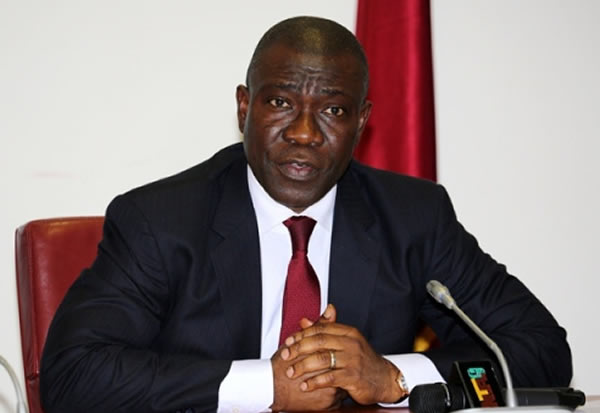When given the opportunity to address British lawmakers in London, the Deputy Senate President, Ike Ekweremadu, did not shy away from telling his audience how slavery and colonialism undermined Africa’s capacity to develop.
“For over 450 years, Europe and America raided and pillaged Africa, took away its best men and women and forced them into slavery. These slaves were used as unpaid labour to build railways and other infrastructures, which the West enjoys today.
“The slaves worked in the plantations, farms, and factories, etc., which were the major engines that drove the economy of the West at the time, giving them an opportunity to overtake Africa by many years.
“Worst still, in 1861, at the Berlin Conference, European powers sat down, without consultations or any qualms, divided Africa in ways that separated kinsmen, ignored traditional and religious ties, and destroyed the self-esteem of the inhabitants in the name of colonialism. As Giles Bolton, a diplomat and long-time aid worker with significant interest and experience in Africa, rightly puts it, ‘Never before had so much (map of any continent) been decided by longitude and latitude rather than tribe or topography’”.
According to him, the first fallout of colonialism and poorly thought-out system of imposing alien political systems on Africa by different colonial overlords at the end of the occupation was abuse of office, corruption, ethnic conflict, mutual and reciprocal ethnic hatreds that disfigured and distorted Africa’s attempt at self-governance, sometimes resulting in fratricidal wars. The military that assumed political authority with a promise to correct the ills of the civilian leaders became more corrupt and even inept than the politicians they criticised and condemned.
Moving forward, Ekweremadu believes that Africa’s problems are largely man-made and yield easily to corrections. Such corrections must come in the forms of effective and efficient democratic institutions- independent parliament, election management body, judiciary, media, and civil society. Others include security of lives and property, predictable term for leaders, genuine fight against corruption, abiding by oath of office, job creation and poverty alleviation, and a strong African Union.
The widespread coercion of the press, civil society, the judiciary, and parliaments by some African leaders, who have no regard for their oaths of office and constitutional limits of their powers is anti-development. For instance, he believes that whereas “an informed, active, and uncompromising parliament is a major factor in nurturing and sustaining democracy, outside Nigeria, South Africa, and a few others, most African parliaments are largely caged and often reduced to rubber stamps and appendages of the executive”.
Cameroon, where the constitution has been severally amended to keep 84 years old President Paul Biya in power since November 1982 and Uganda where the parliament recently voted to remove the constitutional age limit to elongate the tenure of 73 years old President Yoweri Museveni, who has been in office for about 30 years, readily come to mind.
Ekweremadu told his audience that when the Peoples Democratic Party, (PDP), lost election in Nigeria in 2015, the APC-led government ran riot and began to indict, arrest, investigate, and detain its opponents and individual enemies. But the judiciary helped to defend democracy and rule of law. however, in response, the houses of judges were embarrassingly raided at midnight and judicial officers humiliated by security agencies working for the Federal Government of Nigeria. He thinks “Such executive lawlessness must be condemned in strongest terms and must not be allowed to find a sanctuary in African politics”.

